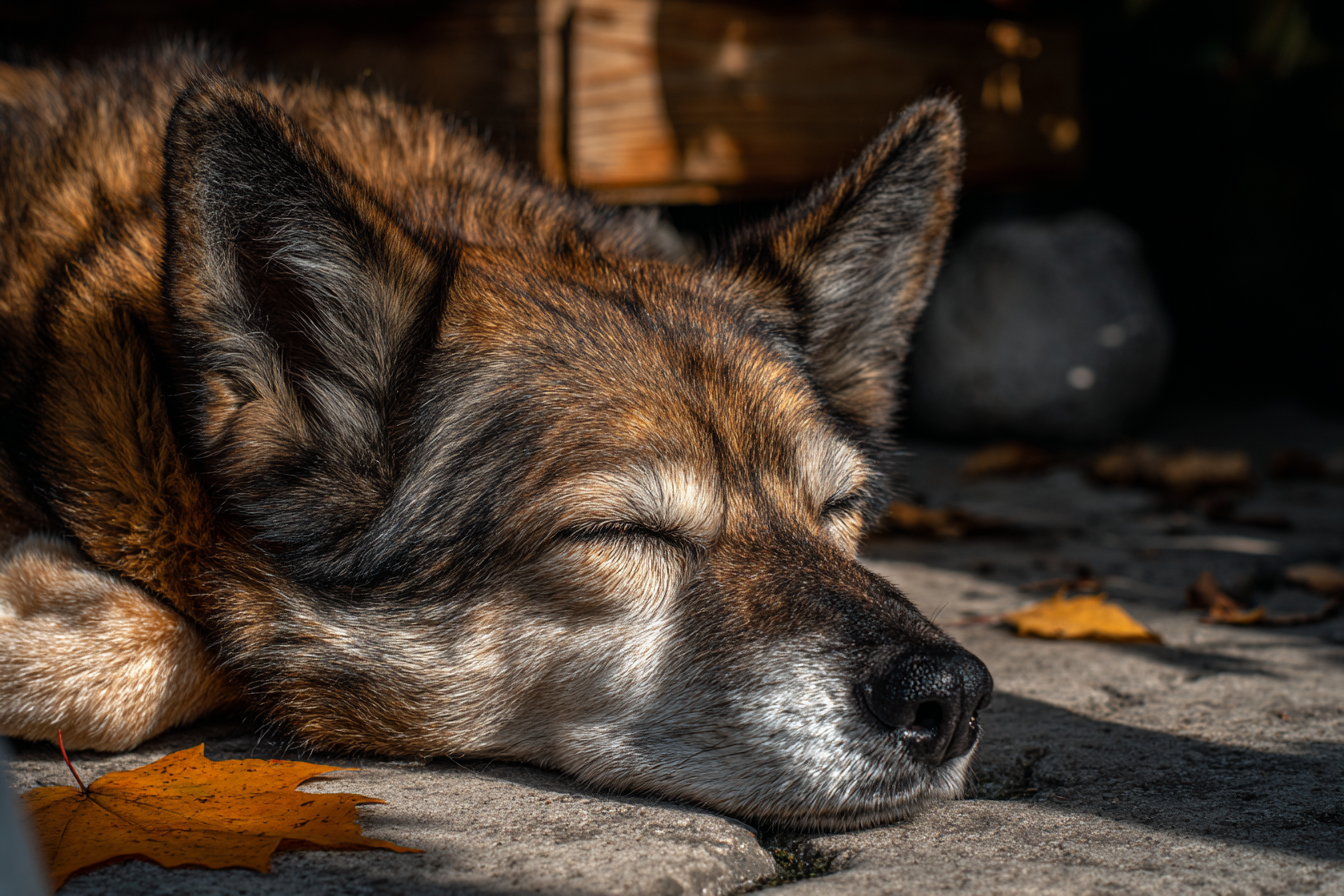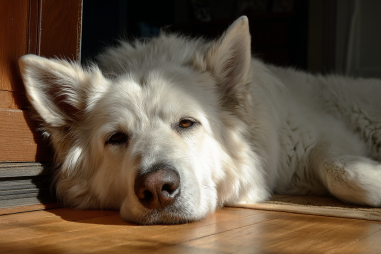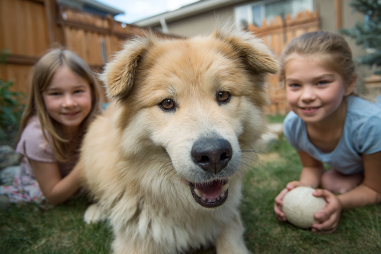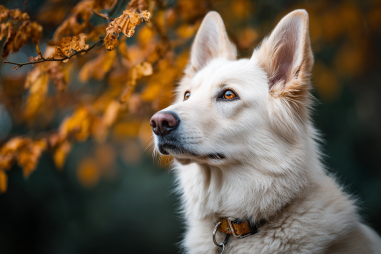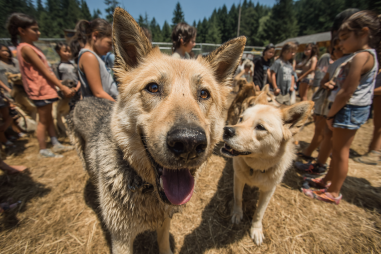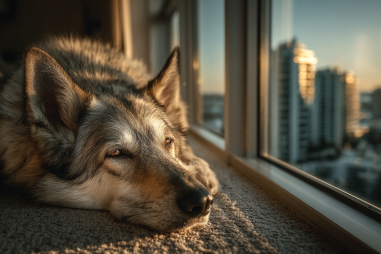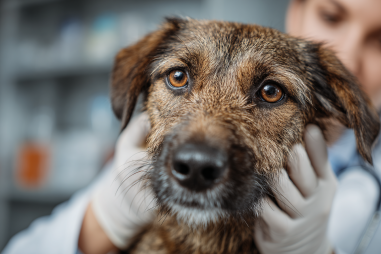Welcoming a Chinook dog into your life means embracing a loyal, intelligent, and energetic companion. Like all dogs, Chinooks go through natural life stages, and understanding their lifespan and aging process can help you provide the best care as they grow older. By learning about typical lifespan expectations, recognizing signs of aging, and making thoughtful adjustments in health care, diet, exercise, and mental enrichment, you can ensure your senior Chinook enjoys a high quality of life. This guide walks you through everything you need to know about supporting your Chinook through their golden years with love and attention.
Overview of Chinook Average Lifespan
The Chinook is a rare and cherished breed that generally enjoys a healthy and relatively long lifespan compared to some other dog breeds. On average, Chinook dogs live between 12 to 15 years. This longevity reflects their sturdy build and generally robust health. However, just like any breed, genetics, lifestyle, and proper care play an essential role in how long your Chinook will live and how well they age.
Chinooks are medium to large-sized dogs originally bred for sledding and endurance work, which means they have a strong constitution inherently suited to active lifestyles. With the right nutrition, exercise, and regular veterinary care, many Chinooks exceed the average lifespan and remain active well into their senior years.
Signs of Aging in Chinooks
As your Chinook transitions from adulthood to senior status—usually around 7 to 9 years of age—you may start noticing subtle changes indicating they are aging. Recognizing these signs early can help you adjust their care appropriately. Here are some common signs of aging in Chinook dogs:
- Reduced energy levels: Your Chinook may become less enthusiastic about long walks or vigorous play sessions.
- Stiffness or slower movement: Joint stiffness or arthritis might cause your dog to move more cautiously or limp occasionally.
- Changes in coat and skin: Fur may become thinner or gray, especially around the muzzle and eyes, and skin may lose elasticity.
- Dental issues: Older dogs often show signs of dental wear, tartar buildup, or gum disease, which can affect appetite and comfort.
- Altered sensory abilities: Sight and hearing may decline, leading to changes in how your dog responds to familiar cues or environments.
- Behavioral changes: Confusion, anxiety, or changes in sleep patterns may indicate cognitive aging or doggy dementia (Canine Cognitive Dysfunction).
By observing these signs, you can tailor your senior Chinook’s care to address their evolving needs.
Health Care Needs for Senior Dogs
Regular veterinary care becomes increasingly important as your Chinook enters their senior years. Annual or biannual check-ups can help detect health issues early and keep chronic conditions under control. Senior dogs are more prone to:
- Arthritis and joint problems
- Kidney and liver disease
- Heart conditions
- Dental disease
- Vision and hearing impairments
- Cognitive dysfunction
Your veterinarian might recommend blood work, dental cleanings, joint supplements, or special medications depending on your Chinook’s health. It is also helpful to monitor your dog’s weight, appetite, and behavior to report any changes to the vet promptly.
Diet and Exercise Adjustments for Older Chinooks
Nutrition and physical activity are two pillars of healthy aging for Chinook dogs. As they age, their metabolism generally slows down, and their activity levels often decrease, so adjustments are necessary to maintain a healthy weight and overall well-being.
Diet:
- Switch to high-quality senior dog food formulated to provide balanced protein, healthy fats, and essential nutrients.
- Focus on ingredients that support joint health, such as glucosamine and omega-3 fatty acids.
- Manage calorie intake carefully to avoid obesity, which can worsen arthritis and other health problems.
- Ensure hydration remains a priority, offering fresh water regularly.
Exercise:
- Adapt walks and playtime to your dog’s energy level—frequent short walks are better than long, strenuous sessions.
- Low-impact activities, like swimming, can be more comfortable for aging joints.
- Consistency is key: daily moderate exercise helps maintain muscle mass, joint flexibility, and mental sharpness.
Work with your veterinarian to develop an appropriate exercise and diet plan tailored to your Chinook’s specific health needs.
Enrichment for Mental Health in Aging Dogs
Aging doesn’t just affect your dog’s body—it also influences their mind. Maintaining mental stimulation helps delay cognitive decline and keeps your Chinook happy and engaged. Try incorporating the following enrichment activities:
- Interactive toys: Puzzle feeders and treat-dispensing toys encourage problem-solving.
- Training sessions: Refresh your dog’s obedience commands or teach new, low-impact tricks.
- Sensory games: Use scent games to stimulate their sense of smell, which remains sharp even in old age.
- Calm social interactions: Gentle playdates or spending time with familiar people comfort your senior dog.
Helping your Chinook stay mentally active supports their emotional wellbeing and provides a valuable sense of purpose even in their later years.
Preparing Emotionally for Your Dog’s Senior Years
Watching your beloved Chinook age can be an emotional journey full of joy, memories, and sometimes heartache. Preparing yourself emotionally allows you to be present, compassionate, and ready to adapt to new challenges.
- Celebrate the time spent together and note each milestone and precious moment.
- Educate yourself on age-related health issues to anticipate what may come and act proactively.
- Build a support network including veterinarians, fellow dog owners, or pet support groups.
- Prioritize your dog’s comfort and happiness, even if that means adjusting expectations on activity and behavior.
- Plan for end-of-life decisions with kindness and thoughtfulness to honor your Chinook’s dignity.
Accepting the natural aging process empowers you to give your Chinook the best care and love throughout every stage of life.
Celebrating Life at Every Stage
Your Chinook’s lifespan is a precious gift, and every phase—from energetic puppyhood to tranquil senior days—deserves celebration and attentive care. By understanding the typical lifespan and signs of aging, adjusting health routines and activities accordingly, and nurturing their mental and emotional wellbeing, you help your senior Chinook live a comfortable, joyful life.
With patience, love, and knowledge, you can enjoy many rewarding years with your Chinook, honoring the unique bond that grows ever stronger through time. Embrace each wrinkle, slower step, and gentle gaze as a testament to a life well-lived together.

